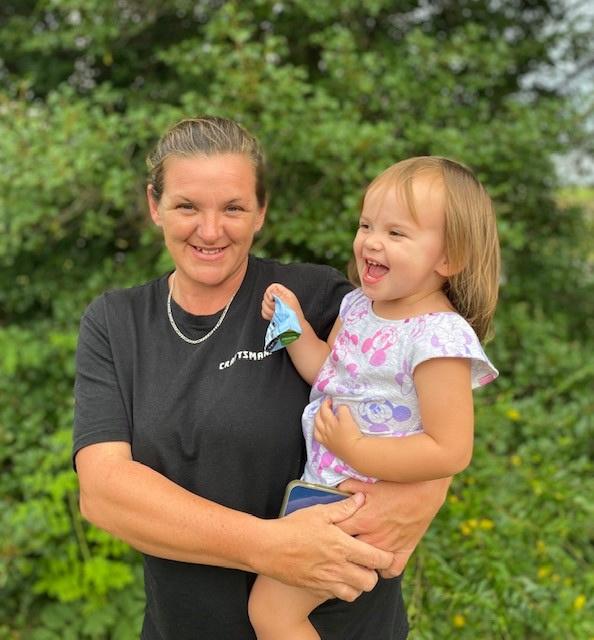
2 minute read
Reuniting Families in Bedford
The Family Treatment Drug Court (FTDC) is an evidence-based model designed to restore, reunite, and strengthen families to ensure optimal health and safety of all members. This program is made possible by a $1.9M grant awarded by the Substance Abuse and Mental Health Services Administration (SAMHSA). The goal of the program is to reunite children with parents who have lost or are in danger of losing custody as a result of opioid/ substance use. In June of 2021, the program celebrated its first year of service, surpassing the target number of families served in the community.
The success of the program is measured by a target of serving 20 unique individuals in years one and two of the program and reaching 25 unique individuals in years three through five for a total of 115 unique clients served. The voluntary program consists of five phases of tapered intensity in which individuals attend counseling services, support groups, drug screenings, and inpatient care over a one-year period. “A collaborative approach is the only way to provide the support necessary to improve each client’s self-efficacy; the belief that they can make the change that they desire in their life.
Advertisement
- Adedamola Onafowokan, Project Director at Horizon
“Horizon saw changes in me that
I didn’t see in myself. ” - Christina Creasy, Program Graduate

Christina Creasy, who graduated with her husband Nick Creasy in the 2021 Dockett, said she will never forget how her case managers encouraged her to advocate for and take care of herself. Today, Christina lives with her husband Nick and their two-year-old daughter, Braylee. She remains dedicated to her journey of recovery and to supporting incoming and former graduates of the program. Ashley Sweigart is a graduate of 2020, who also embodies the full potential of this powerful program. Ashley was first prescribed opiates for pain management following the birth of her son, Jordan. Years later, Ashley struggled very hard giving up opioids but found monumental success having graduated from the program in just under a year. Today, Ashley is eagerly expecting her second child, Adaela, and is armed with the confidence to get through the birth by proactively talking with her doctors about her complete birth plan. “Being able to have the support I need to be prepared for this next pregnancy is critical, ” says Christina. “I have worked so hard to be where I am today.
Community partnerships have been transformational in lowering barriers to access, finding appropriate services, providing those services, and getting residents to those services. Horizon is proud to work alongside dedicated service providers such as the Department of Social Services, Court Appointed Special Advocates (CASA) of Central Virginia, the Bedford Court System, and the Lynchburg Health Department. These partnerships have established a firm footing for future success.
Horizon and its partners continue to seek out innovative approaches to overcoming barriers presented by the COVID-19 pandemic. These barriers include a lack of public transportation in rural communities, social isolation, and insufficient broadband infrastructure necessary for telehealth services. To date, the program celebrates ten program graduates who have displayed perseverance and dedication to expedite the reunification of their families made possible by the Family Treatment Drug Court.





